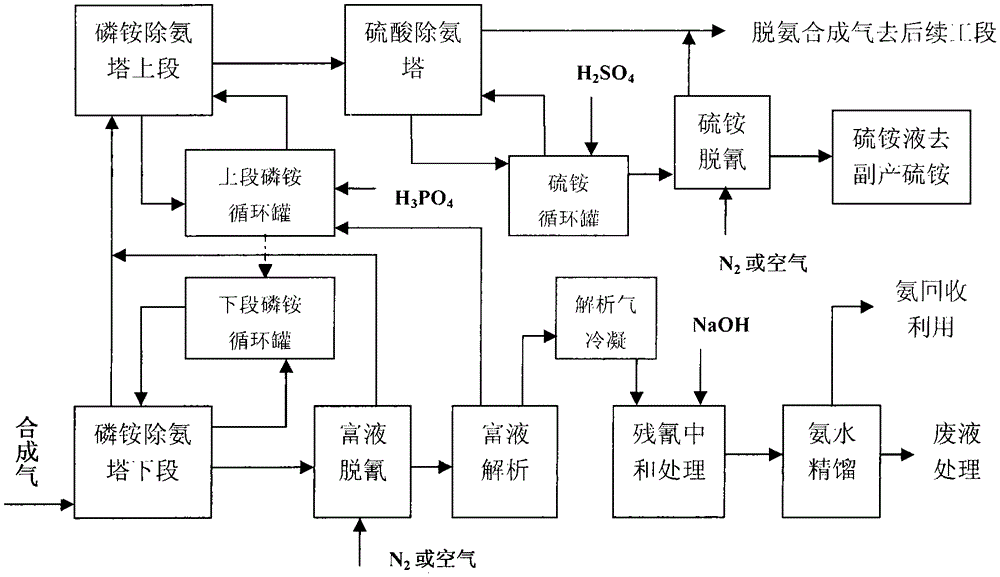Environmentally friendly process for removing ammonia from ammonia oxidation synthesis gas
A process method and synthesis gas technology, applied in the direction of hydrogen separation, using liquid contact hydrogen separation, etc., can solve the problems that the thoroughness of removal cannot be solved well, the stability of diammonium hydrogen phosphate is limited, and it is difficult to meet the processing requirements, etc. Achieve the effect of breaking through environmental technical barriers, realizing environmentally friendly and clean production, and solving the contradiction between consumption and product quality
- Summary
- Abstract
- Description
- Claims
- Application Information
AI Technical Summary
Problems solved by technology
Method used
Image
Examples
Embodiment
[0029] Example: Angle method natural gas ammoxidation to synthesize prussic acid, the reaction synthesis gas is combined to remove ammonia to obtain the reaction synthesis gas without ammonia or with a constant amount of ammonia.
[0030] The composition of a certain synthesis gas before ammonia removal is as follows:
[0031] serial number
component name
Component ratio%
serial number
component name
Component ratio%
1
HCN
0.08092
6
N 2
0.54328
2
NH 3
0.01508
7
CO 2
0.00503
3
h 2 o
0.25513
8
CO
0.04705
4
CH 4
0.00462
9
H 2
0.04765
[0032] 5
O 2
0.00020
10
other
0.00104
[0033] The primary ammonia removal synthesis gas is obtained by recycling the free ammonia through primary ammonia removal. The composition of the primary ammonia removal synthesis gas is as follows:
[0034] seria...
PUM
 Login to View More
Login to View More Abstract
Description
Claims
Application Information
 Login to View More
Login to View More - R&D
- Intellectual Property
- Life Sciences
- Materials
- Tech Scout
- Unparalleled Data Quality
- Higher Quality Content
- 60% Fewer Hallucinations
Browse by: Latest US Patents, China's latest patents, Technical Efficacy Thesaurus, Application Domain, Technology Topic, Popular Technical Reports.
© 2025 PatSnap. All rights reserved.Legal|Privacy policy|Modern Slavery Act Transparency Statement|Sitemap|About US| Contact US: help@patsnap.com

